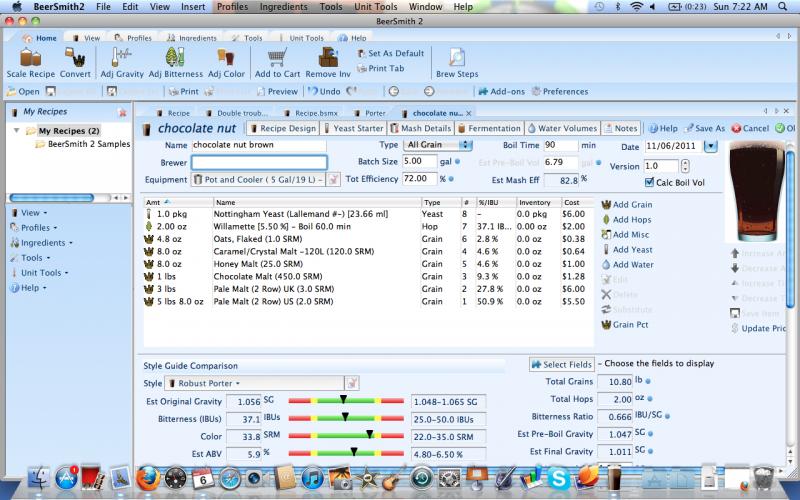bighorn_brew
Well-Known Member
A friend gave me a mini fridge that I am converting to kegerator, and I want to hook him up with a nice beer to enjoy shortly after Thanksgiving. I want it to really shine so I am going to pay particular attention to all the basics. I have a limited amount of ingredients on hand, yeasts include:
Nottingham dry
Windsor yeast cake from a small beer I just made on stove top
safeale us-05 dry
1007 german ale liquid
1187 ringwood ale liquid
He likes hoppy ipa beers, but during the winter months moves toward darker beers, so I am thinking a robust porter (similar to pigs ass porter if anyone has had that, a london style porter). I want the malt to shine, but not in a overwhelming way, thats why I am thinking Nottingham dry yeast, fermenting 65 degrees.
Can you see faults or suggestions you might make to this recipe, I have some cascade hops on hand, and rye malt, US 6 row, US wheat malt, basmati rice. Thanks in advance and looking forward to hearing your suggestions.

Nottingham dry
Windsor yeast cake from a small beer I just made on stove top
safeale us-05 dry
1007 german ale liquid
1187 ringwood ale liquid
He likes hoppy ipa beers, but during the winter months moves toward darker beers, so I am thinking a robust porter (similar to pigs ass porter if anyone has had that, a london style porter). I want the malt to shine, but not in a overwhelming way, thats why I am thinking Nottingham dry yeast, fermenting 65 degrees.
Can you see faults or suggestions you might make to this recipe, I have some cascade hops on hand, and rye malt, US 6 row, US wheat malt, basmati rice. Thanks in advance and looking forward to hearing your suggestions.




